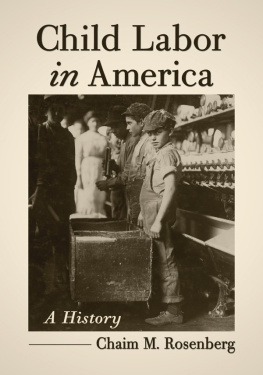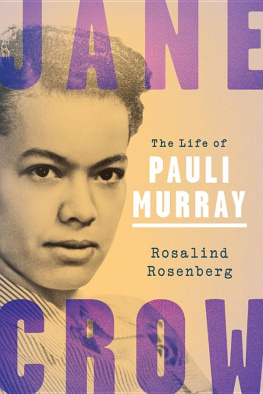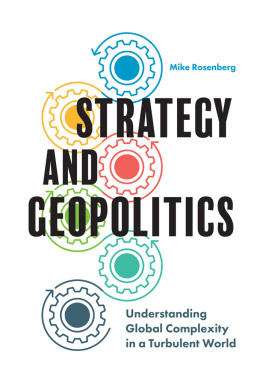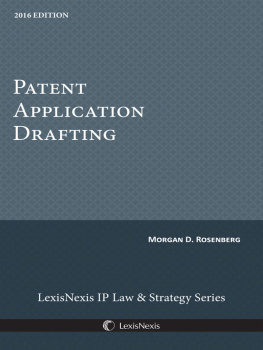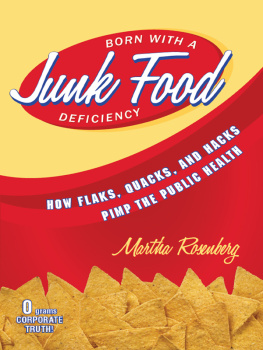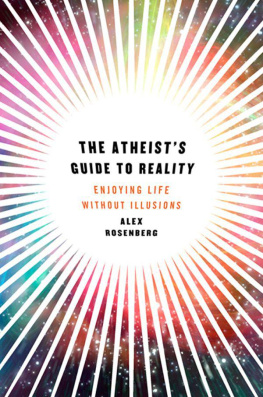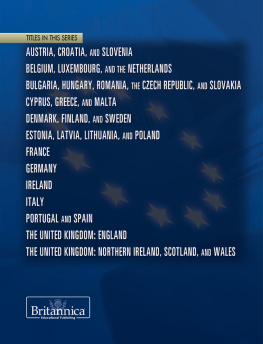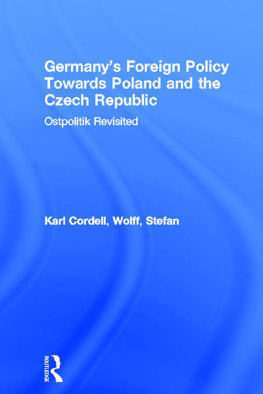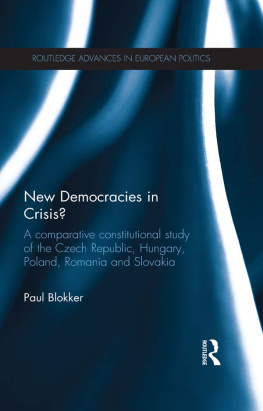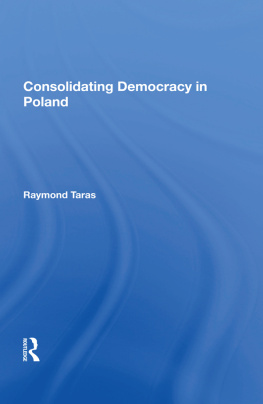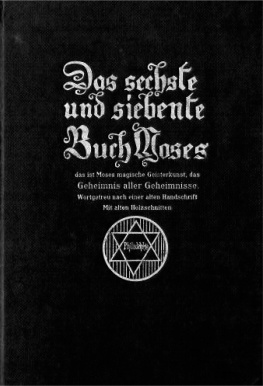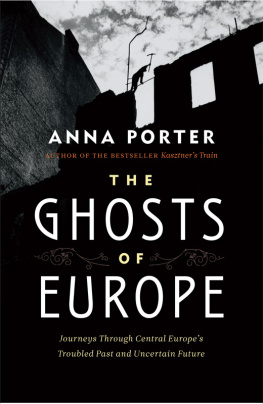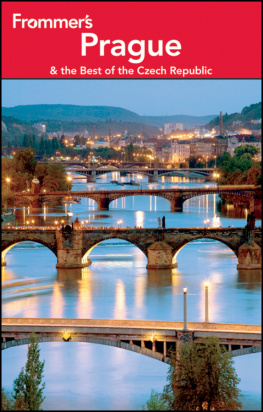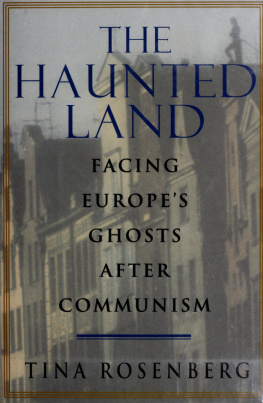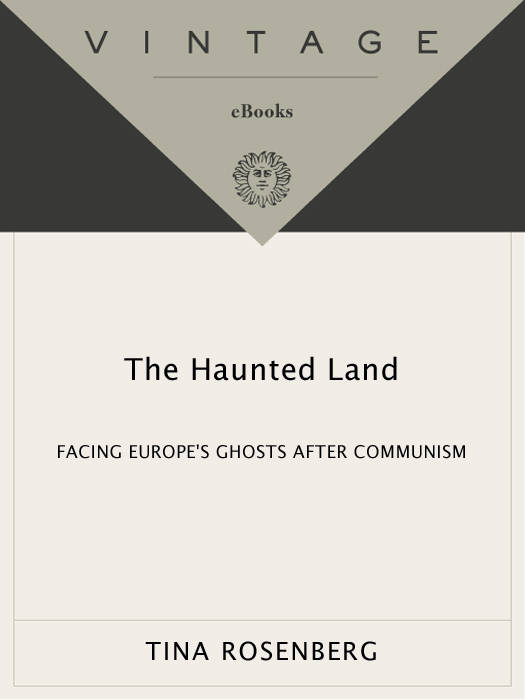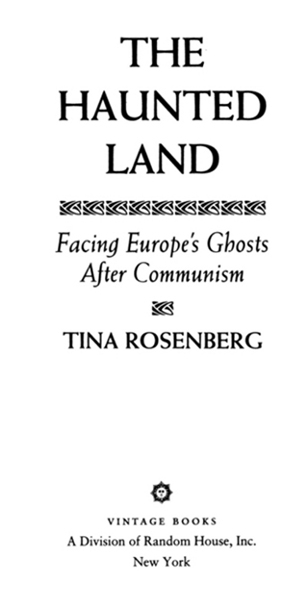ACCLAIM FOR
Tina Rosenbergs
The Haunted Land
Tina Rosenberg has traveled around the ruins of a fallen empire and returned with astonishing tales of human memory and struggle a book filled with marvels. The Haunted Land is the best portrait of post-imperial Eastern Europe around.
David Remnick, author of Lenins Tomb
[An] intensely moral examination an important, finely written work of reportage that deserves to be widely read.
Detroit Free Press
Fresh, superbly reported, and well-written. Rosenbergs considerable suspense lies in the subtlety of the questions she asks and in the diligence with which she has dug up human stories that offer answers.
Washington Monthly
A book from the great tradition of American investigative journalism, full of scrupulous and exhaustive on-the-spot research and reporting. A genuine achievement: rich, vivid, and stimulating. The Haunted Land will teach you more about the real life of post-Communist Central Europe than many a multi-author volume of academic transitology.
Timothy Garton Ash,
The New York Review of Books
Tina Rosenberg
The Haunted Land
Winner of the 1995 Pulitzer Prize, the National Book Award, and the New York Public Library Helen Bernstein Award for Excellence in Journalism, Tina Rosenberg was the first freelance journalist to receive a five-year MacArthur genius award, in 1987. She is the author of Children of Cain: Violence and the Violent in Latin America. She lived in Latin America from 1985 to 1990 and traveled extensively in the former Soviet bloc from 1991 to 1994. Her reporting on foreign affairs has appeared in The New Yorker, Harpers, The New Republic, The Atlantic, Rolling Stone, and other publications. Formerly a Senior Fellow at the World Policy Institute at the New School for Social Research, she joined the editorial board of The New York Times in 1996. She lives in New York City.
Also by Tina Rosenberg
C HILDREN OF C AIN:
V IOLENCE AND THE V IOLENT IN L ATIN A MERICA
First Vintage Books Edition, June 1996
Copyright 1995 by Tina Rosenberg
All rights reserved under International and Pan-American Copyright Conventions. Published in the United States by Vintage Books, a division of Random House, Inc., New York, and simultaneously in Canada by Random House of Canada Limited, Toronto. Originally published in hardcover by Random House, Inc., New York, in 1995.
The Library of Congress has cataloged the Random House edition as follows:
Rosenberg, Tina.
The haunted land: facing Europes ghosts after communism /
Tina Rosenberg.
p. cm.
eISBN: 978-0-307-77358-6
1. Europe, EasternHistory1989 .2. Post-communismEurope, Eastern. 3. Political persecutionEurope, EasternHistory20th century.
I. Title.
DJK51.R67 1995
947dc20 94-24750
v3.1
F OR MY PARENTS
Contents
Introduction
The tiny cluster of East German dissidents boasted few activists who seemed more dedicated than Vera and Knud Wollenberger. They were both in their late twenties when they met in 1980. Knud moved into Veras apartment shortly after, and they were married the next year. They had both grown up in privileged Communist families: Knuds father was a professor of medicine at East Berlins prestigious Humboldt University. He married a Danish woman, and Knud, born in Denmark, carried dual citizenship and with it the right to travel. A scientist in a state economics institute, Knud was a frequent visitor to England and the United States. Veras father was an officer in the Ministry for State Security, or Stasi. Veras fury at her fathers profession marked her childhood. At eighteen she moved out of her parents house and threw herself into opposition work.
In February 1981 the couple became founding members of the Peace Circle in their East Berlin neighborhood of Pankow. The Peace Circle members were socialists but believed that the Communist state had betrayed their ideals. With his long beard and socks with his sandals, Knud was typical of the men. The women, like Vera, wore simple clothes and no makeup. The thirty or so regular members held human rights protests and ecological vigils. They organized seminars on Chernobyl and disrupted government rallies with their own signs demanding free speech.
In the beginning Vera was a shy woman, unable to speak up at meetings. She and Knud would talk over the issues at home, and, once at the Peace Circle, he would do her speaking for her. But gradually she gained the confidence to express her views. She became a leader in the Peace Circle, the head of its ecological committee. Her relationship with Knud changed. He stayed home with their children, wrote poetry, and kept bees, while she went to political meetings. He became Veras Peace Circle helper. Once the two of them stayed up all night to make a hundred copies of a seminar invitation, writing each one by hand and addressing the envelopes. When Vera went to ecological seminars in Czechoslovakia or Hungary, Knud always insisted on going with her. Other women, said Vera, envied her her supportive and gentle husband.
It was dangerous work. Members risked their jobs and their freedom. (Vera herself spent a month in jail in early 1988 and then was exiled to England.) The Stasi was everywhere. Stasi agents posing as new members started rifts in the group and argued for moderating the Circles views. Stasi spying and infiltration were the subject of constant discussion; fear of the Stasi threatened to paralyze the group. Lets not forget about the Stasi, Knud would argue. But lets not spend all our time talking about it, either.
Vera flew back from exile to Berlin on November 9, 1989, the day the Berlin Wall fell. She then joined the Volkskammerthe East German parliament, made up largely of former dissidentsand after unification, went to Bonn as a member of the Bundestag from the Green Party.
Of all the controversies facing post-Communist Germany, few were as hotly debated as the question of what to do with the Stasi files. Most of the former dissidents, including Vera, argued that they should be opened to allow Stasi victims to read about their past. Vera helped to write the victorious law. In late 1991 she was given access to her own file.
It was full of reports from a Stasi informer with the code name Donald. Included were the down payment for a house the couple had thought about buying, quotations from letters she had written from prison to her son, secret side trips she had taken when abroad. Only one person could know of all these things, Vera realized: Informer Donald was her husband.
I went to see Knud Wollenberger in 1993. He is beardless now, living with a few friends in the large, drafty Pankow apartment the family once shared. We sat in the kitchen and drank tea and cracked organic walnuts. He had been a Stasi agent since the early 1970s, Knud said. Twice a month he had had a conversation with his handler, meeting him in a secret Stasi-owned apartment.
But this was not a betrayal, he insisted. I was influencing the government through the information I gave them. He still believes in the ideals, he said; the apartment door is still plastered with stickers from the Peace Circles causes. But today Knud Wollenberger is divorced and alone. No one from the Peace Circle comes to see him.


